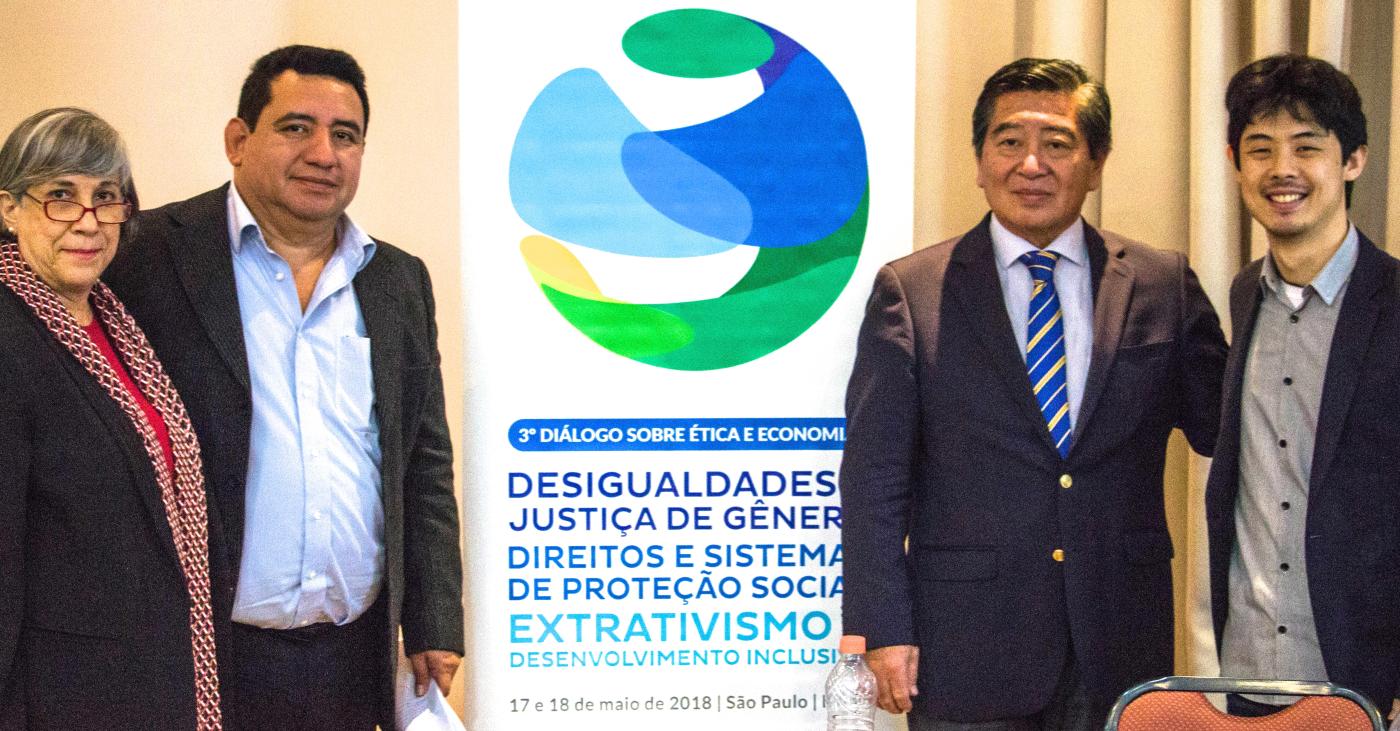Between 17–18 May, representatives of several religious denominations, theologians, economists, and experts in development and ecumenism gathered in São Paulo, Brazil, for the 3rd Dialogue on Ethics and Economics. They aim to build a common message to G20 leaders who will meet in Argentina later this year.
The G20 is a forum composed of the 20 richest countries in the world and is a space for cooperation and consultation among countries on issues related to the international financial system.
Economist Thomas Kang, member of the Central Committee of the World Council of Churches (WCC), who was responsible for moderating one of the sessions of the São Paulo meeting, sees the dialogue as part of an ongoing process of revival of the importance of the relationship between ethics and economics.
“Churches and faith-based organizations (FBOs) can contribute to this dialogue, since technical expertise of economists is necessary, but not sufficient to discuss what policies improve people's lives. The knowledge of local reality and theological reflection can play an important role in the public debate on development, taking into account dimensions other than income and wealth”, he said.
The purpose of the three dialogues is to shape a background document with recommendations for the promotion of a human and integral development model, based on the knowledge and experience of faith communities and religious organizations in Latin America and the Caribbean. The document will be released in a public event next September, in Argentina.
The São Paulo round of dialogue follows up on two previous dialogues on ethics and economics convened by the Latin American office of Christian Aid; Secretariat for Latin America and the Caribbean of Caritas; Department of Justice and Solidarity of the Latin American Episcopal Council; International Program on Democracy, Society and New Economies of the University of Buenos Aires; Globethics; and the Regional Ecumenical Center for Consultancy and Service (CREAS).
“In this process of dialogue, economy and ethics are being thought of as key elements that could help leaders to overcome the different dimensions of inequalities that are not only related to economic income, but also to gender, race, environment, and social issues”, said Humberto Shikiya, executive director of CREAS, and one of the leaders of the event.
“Churches and FBOs have specific tools to contribute to the reflection on ethics towards a more transformative paradigm of development that can help us achieve a dignified and abundant life for all," added Shikiya.
Sessions of the third round of dialogue focused on issues of structural inequalities and gender justice; extractivism and inclusive human development; social protection systems, automation and protection of work and international financial architecture.







